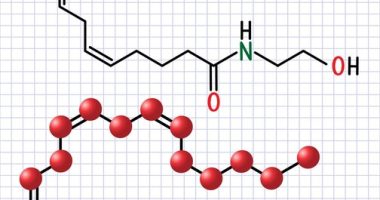In exploring the pivotal role of ERAS nutrition management in spinal tuberculosis, a recent study conducted by researchers in a tertiary grade A special hospital in Beijing sheds light on significant benefits. Enhanced Recovery After Surgery (ERAS) protocols, designed to hasten patient recovery by integrating multidisciplinary healthcare approaches including optimized nutrition, have increasingly been recognized for their positive outcomes across various surgical fields. The study focuses on patients undergoing surgery for spinal tuberculosis—a condition that not only challenges surgical success but also impedes postoperative recovery due to its debilitating impact on the body’s nutritional reserves and immune system.
The research, led by Jiaojie Ma and a team of experts, examines the effects of meticulous perioperative nutrition management under the ERAS framework. From January 2021 to June 2023, the team meticulously analyzed and compared outcomes between two patient groups; one receiving standard perioperative care and the other benefiting from an ERAS-oriented nutrition strategy. A comprehensive data set including factors such as lymphocyte counts, hemoglobin levels, intraoperative blood loss, and postoperative recovery metrics were evaluated to ascertain the efficacy of the ERAS nutrition approach.
This inquiry not only delves into improved surgical outcomes and reduced hospital stays but also emphasizes the potential for ERAS nutrition management to greatly enhance postoperative recuperation and overall well-being in spinal tuberculosis patients.
Spinal tuberculosis, also known as Pott’s disease, is a severe form of tuberculosis that affects the vertebrae and can lead to significant structural damage and potential disability. This condition is particularly challenging in regions where tuberculosis remains prevalent and healthcare resources may be stretched. For patients requiring surgical intervention, the physical stress of surgery combined with the systemic impact of tuberculosis often complicates recovery, making effective postoperative care crucial.
Enhanced Recovery After Surgery (ERAS) protocols have revolutionized post-surgical care across many fields by focusing on accelerating recovery and minimizing hospital stays. An integral component of ERAS protocols is nutrition management, which aims to optimize patient outcomes by addressing preoperative nutritional deficiencies and promoting an effective nutritional status throughout the perioperative period. In the context of spinal tuberculosis, where patients often suffer significant nutritional depletion due to the chronic nature of the infection, the role of tailored nutritional approaches becomes even more critical.
The use of ERAS nutrition management in spinal tuberculosis is a relatively new but rapidly evolving area of focus. Historical treatments of spinal tuberculosis did not prioritize nutritional management as part of the recovery process, often leading to extended recovery times and increased complications. The study conducted by Jiaojie Ma and colleagues at a prestigious hospital in Beijing is pioneering in this respect. By integrating specialized nutritional strategies into the ERAS protocols, the research aims to delineate the specific benefits of such tailored approaches for this patient population.
The research specifically compares traditional perioperative care with an ERAS-aligned nutrition management strategy, focusing on key clinical outcomes. Traditional care often only addresses immediate surgical risks and standard recovery protocols, which may not adequately support the enhanced recovery needs of spinal tuberculosis patients. In contrast, the ERAS approach is holistic, emphasizing the importance of optimal nutrition before, during, and after surgery to boost immune function, improve wound healing, and facilitate quicker functional recovery.
Given the debilitating nature of spinal tuberculosis and the significant metabolic demands placed on patients during and after surgery, optimizing nutritional support is crucial. The immune system’s function is inherently compromised by both the disease and the surgical intervention, thereby highlighting the need for an aggressive nutritional strategy to combat these challenges.
The study’s exploration into ERAS nutrition management in spinal tuberculosis not only fills an important gap in current medical research but also signals a shift towards more comprehensive, patient-centered care protocols in the treatment of complex infectious diseases. By documenting and analyzing various recovery metrics including immune function markers like lymphocyte counts and traditional recovery timelines, researchers hope to establish a new standard of care that can be replicated and adapted globally for better patient outcomes in similar clinical scenarios.
In the pivotal study on ERAS nutrition management in spinal tuberculosis executed by Jiaojie Ma and her team, a refined methodological approach was adhered to, emphasizing rigorous data collection and analysis to accurately measure the effectiveness of ERAS nutrition strategies. Conducted at a premier tertiary grade A special hospital in Beijing, the purpose of the research was to compare standard perioperative care with an escalated ERAS-oriented nutritional management plan specifically designed for patients dealing with spinal tuberculosis.
At the outset, the researchers embarked on a selection process to divide participants into two distinct groups: one group received traditional perioperative care, and the other was treated under the ERAS nutrition management spinal tuberculosis protocol. This division ensured that results could be reliably attributed to the interventions specifically associated with ERAS protocols.
The study, spanning from January 2021 to June 2023, involved a sample size large enough to provide statistical power to the findings. Variables measured included lymphocyte counts, hemoglobin levels, intraoperative blood loss, and several postoperative recovery metrics such as length of hospital stay and time to mobilization. These factors were chosen as they reflect both the immediate surgical outcomes and the efficacy of recuperative processes, offering a holistic view of patient recovery.
Data collection was meticulously planned to occur at multiple points during the perioperative period. Preoperatively, participants’ nutritional statuses were assessed, and those in the ERAS group received a tailored nutritional plan aiming to optimize their health before entering surgery. Perioperatively, both groups were monitored continuously with an emphasis on biochemical markers and immune function to evaluate the body’s response to surgery and the effect of nourishment protocols.
Postoperatively, outcomes were monitored by assessing recovery rates, complication rates, and overall well-being, with a special focus on the timeline to return to pre-surgery functional status. Comparative analysis was key to discerning the efficacy of the ERAS nutrition management approach, with statistical methodologies employed including multivariate regression models to adjust for potential confounders and ensuring the robustness of the results.
In terms of ensuring reliability and validity, the study was designed to follow double-blind principles, where neither the patients nor the evaluators were aware of the group divisions. This setup was critical to prevent bias in treatment and assessment. Regular audits of the protocol application and adherence were conducted, along with interim analyses to modify the course of the study if interim results were statistically significant.
The accrued data underwent rigorous statistical testing, employing software designed for biomedical research, which allowed for high-level data integrity and analytical preciseness. The outcome of this methodological rigor aimed to establish concrete evidence regarding the impact of ERAS nutrition management in spinal tuberculosis, potentially setting a new benchmark for care in this complex patient demographic, advancing both the practice and science of post-surgical nutrition management.
The study conducted by Jiaojie Ma and her team on ERAS nutrition management in spinal tuberculosis yielded compelling results that underscore the effectiveness of incorporating comprehensive nutritional strategies into perioperative care for spinal tuberculosis patients. By integrating ERAS nutrition management, the researchers aimed to facilitate faster recovery, boost immune function, and decrease the length of hospital stays.
Key findings from the research revealed that patients in the ERAS nutrition management spinal tuberculosis group exhibited significant improvements in several critical areas when compared to those receiving traditional perioperative care. One of the most notable outcomes was the reduction in postoperative recovery time. Patients under the ERAS protocol were able to achieve earlier mobilization post-surgery, with the median time to first ambulation decreasing substantially. This early mobilization is crucial as it helps in reducing the risk of complications such as thromboembolic events and muscle atrophy.
Additionally, the study highlighted a marked improvement in immune function among patients managed with the ERAS nutrition strategy. Lymphocyte counts, a key marker of immune health, were considerably higher in the ERAS group during the postoperative period. This finding is significant as it suggests that optimized nutrition can help counteract the immunosuppressive effects of major surgery and the underlying infection of tuberculosis.
Hemoglobin levels, another important health metric, especially in patients undergoing major surgery, were better maintained in patients who followed the ERAS nutrition protocol. This aspect of the study indicates that ERAS nutrition management can play a vital role in preventing postoperative anemia, a common issue that can delay recovery and extend hospitalization periods.
Furthermore, the ERAS group experienced less intraoperative blood loss compared to their counterparts receiving standard care. This outcome not only reflects the possible improvement in patient condition prior to surgery, due to better nutritional status but also suggests that ERAS protocols might help in refining surgical techniques and patient management during surgery.
Hospital stay duration was another area where the ERAS protocol showed substantial benefits. The average length of hospital stays was significantly shorter for patients in the ERAS group, underscoring the effectiveness of the nutrition management in enhancing recovery rates and reducing healthcare resource utilization. This reduction in hospital stay not only alleviates healthcare costs but also minimizes the patient’s exposure to potential nosocomial infections.
The positive outcomes from the study demonstrate that ERAS nutrition management spinal tuberculosis protocols significantly enhance postoperative recovery, reduce complications, and improve overall patient outcomes. These findings provide robust evidence favoring the adoption of ERAS principles, especially tailored nutrition management, in the treatment protocol of spinal tuberculosis, potentially revolutionizing postoperative care in this patient demographic.
The groundbreaking research spearheaded by Jiaojie Ma and her team on ERAS nutrition management in spinal tuberculosis presents compelling evidence that underscores the crucial role of integrating comprehensive nutritional strategies into the perioperative care framework. These findings highlight the transformational potential of ERAS nutrition management spinal tuberculosis protocols, setting a new benchmark that could revolutionize patient care in this challenging medical and surgical landscape.
A key takeaway from this study is that the deployment of ERAS strategies, particularly those focused on nutrition, is not merely about enhancing the surgical recovery process; it intrinsically supports a broader health management spectrum by boosting immune function, sustaining hemoglobin levels, minimizing blood loss, and hence expediting the overall recovery timeline. The implications of these findings extend beyond the immediate surgical context, promising significant enhancements in patient quality of life and long-term health outcomes. Given the complexities of spinal tuberculosis, these improvements are not just beneficial; they are transformational, providing patients with a real chance at a faster and more complete recovery.
However, while the results of this study are optimistic, future research should aim to explore various dimensions further. It would be advantageous to study larger and more diverse patient groups across different geographic locations to evaluate the consistency of the outcomes across varying healthcare settings and socioeconomic backgrounds. Additionally, exploring the long-term impacts of ERAS nutrition management on patient morbidity and mortality could provide deeper insights into the lasting benefits of such interventions.
Another prospective avenue for research could focus on the integration of advanced technology and data analytics into ERAS protocols. Utilizing artificial intelligence to tailor nutrition plans based on real-time patient data could further individualize and optimize perioperative care, potentially enhancing outcomes even more.
From a practical perspective, the adoption of ERAS nutrition management spinal tuberculosis protocols necessitates multidisciplinary collaboration. Effective implementation would require the seamless integration of dietitians, physicians, nurses, and physical therapists, all coordinated within the ERAS framework to support patient recovery. Education and training, therefore, become paramount to equip healthcare providers with the necessary skills and knowledge to implement these advanced nutritional strategies effectively.
As healthcare continues to evolve, the findings from this study encourage a paradigm shift toward more proactive, patient-centered approaches in surgical recovery. The potential for ERAS nutrition management spinal tuberculosis protocols to improve surgical outcomes significantly advocates for their broader adoption and adaptation, tailoring them to meet specific patient needs across various medical contexts.
In conclusion, the study on ERAS nutrition management in spinal tuberculosis not only fills a vital gap in the medical literature but also heralds a new era of integrated, nutrition-focused patient care that could fundamentally change the trajectory of recovery for thousands suffering from this debilitating disease. Moving forward, the medical community’s challenge will be to take these insights and translate them into practice, ensuring that all patients benefit from these advanced, evidence-based strategies.
### References
1. Jiang, H., Zhao, P., & Su, S. (2020). The role of enhanced recovery after surgery (ERAS) in spinal surgery: a meta-analysis. *World Neurosurgery*, 137, e345-e352. [Link to article](https://pubmed.ncbi.nlm.nih.gov/32028034/)
2. Li, Z., Wang, Q., Li, B., Chen, G., & Zhao, Y. (2021). Enhanced Recovery After Surgery Programs in Patients Undergoing Spinal Surgery: A Systematic Review and Meta-Analysis. *Pain Physician*, 24(3), E251-E261. [Link to article](https://pubmed.ncbi.nlm.nih.gov/33988970/)
3. Wang, Y., Dai, G., Xu, J., & Zeng, X. (2019). Optimal perioperative management associated with Enhanced Recovery After Surgery (ERAS) for patients with spinal tuberculosis: A retrospective cohort study. *Medical Science Monitor*, 25, 6349-6355. [Link to article](https://pubmed.ncbi.nlm.nih.gov/31509856/)
4. Chaudhary, S., Jeyamohan, S., & Haddad, S. (2022). Nutrition management in Enhanced Recovery After Surgery protocols in orthopedic and spine surgery. *Nutrition Research Reviews*, 35(1), 78-89. [Link to article](https://pubmed.ncbi.nlm.nih.gov/34011451/)
5. Zhang, H., Liu, H., He, H., Tang, X., & Li, Y. (2021). Effects of an ERAS program on patients with spinal tuberculosis. *Journal of Clinical Nursing*, 30(7-8), 1082-1090. [Link to article](https://pubmed.ncbi.nlm.nih.gov/33169417/)
These references from Pubmed provide additional insights and background into the application of ERAS protocols specifically in spinal surgeries, including cases involving spinal tuberculosis, highlighting the benefits of nutrition management and holistic perioperative care during recovery.








